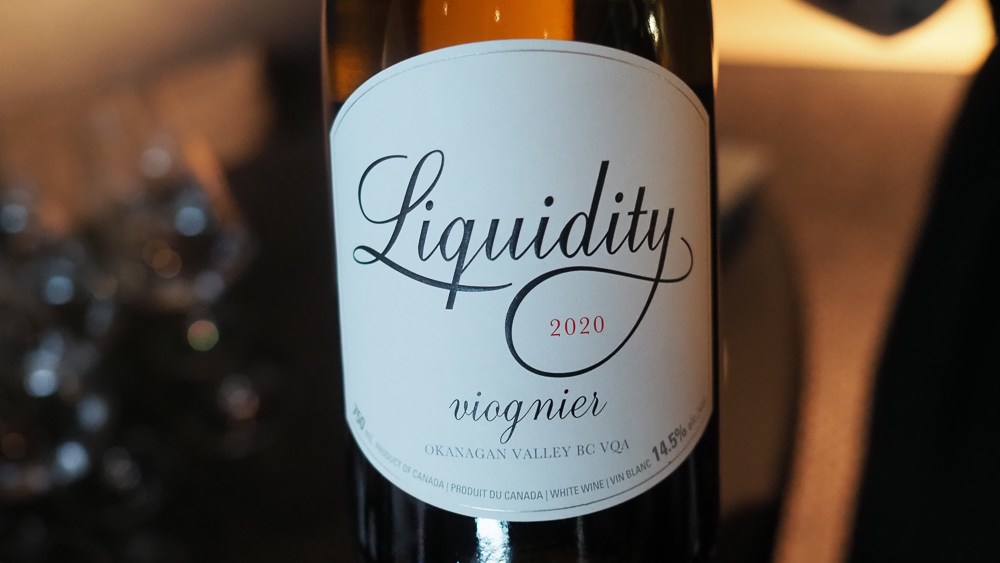I was hosting a dinner party for our usual bunch last week, and was searching the cellar for a nice white wine to pair with the garlic shrimp appetizers. After sifting through a variety of dull and dreary Chardonnays, I came upon a bottle of Marsanne that I picked up last year on my annual pilgrimage to Okanagan wine country.
For those not familiar with the varietal, Marsanne is a white grape from the famed Rhône region of France, which has been producing wine since 600 BCE. Dozens of grape varietals are planted in the Rhône region, with Grenache being the most popular red in the southern part of the valley, while Marsanne is the most popular white planting in the cooler northern section of the Rhône.
Marsanne is commonly blended with Roussanne and/or Viognier grapes to produce a more balanced wine, and will produce a deeply golden white wine, with plenty of pear and spice on the tongue, followed by a rich and nutty finish. Its slightly oily texture lets it pair well with food, coating your taste buds for extended savouring.
While the ancestral home of Marsanne lies in the Rhône Valley of France, and is still home to the majority of plantings worldwide, the grape has thrived in other climes, most successfully in California and Australia, and we even have plantings of Marsanne right here in Canada, especially in the southern region of the Okanagan Valley near Osoyoos, the hottest and driest part of Canada’s wine country.
Marsanne thrives in dry and rocky soils, so the desertlike climate in the southern part of the Okanagan Valley produces shining examples. Canadian vineyards tend to blend Marsanne with a bit of Roussanne to add some herbal notes, and possibly even a bit of Viognier to provide a silky finish.
Faithful readers may recall me waxing poetic about Terravista Vineyards, a small hobby winery started by the Tennant family, a rockstar husband/wife pair that went into semi-retirement after selling their famed Black Hills Estate Winery in 2007 to an investment group that included 90s heartthrob Jason Priestly of 90210 fame.
The Black Hills Estate Winery had a cultlike following in the early years of the new millennium, with their Bordeaux-styled Note Bene selling out immediately after each release, so the wine lovers of the Okanagan watched and waited for the Tennant family to get bored of retirement and open another winery, and were rewarded with Bob and Senka Tennant opened Terravista Vineyards in 2008.
The Terravista Figaro uses the time-tested blend of Marsanne, Roussanne, and Viognier to produce an off-dry white wine with notes of nectarine and almond, with a silky lemon meringue finish. I visit the small vineyard on the Naramata Bench just outside of Penticton every year or two, and always bring home a case of their small-batch white wines lovingly produced by luminaries of the BC wine industry.
Road 13 is another Okanagan Vineyard that produces a Marsanne, this one blended with just 4% Roussanne and 2% Viognier to marry the different flavours into a perfectly balanced white wine with notes of peach and honeysuckle, with a bit of marzipan on the finish.
Fortunately, Marsanne tends to thrive in the same climes as its companion wines of Roussanne and Viognier, with Marsanne ripening slightly later in the season.
My favourite domestic example of Marsanne comes from Cassini Cellars, which faithful readers may recognize as the winner of the 2017 Winery of the Year award, and a winery I have visited several times over the years.
Cassini Cellars opened their doors in 2007, and are located near Oliver, in the southern end of the Okanagan Valley, and are blessed with the optimal terroir for Marsanne plantings.
Being located in a hot and dry region of the Okanagan, the majority of the plantings at Cassini Cellars are big and bold reds, with the Syrah and Cab Sauv much sought after. Fortunately, they have small but well-curated plantings of all the popular white grapes, with the less-common Marsanne growing in popularity every year.
The Cassini Cellars Marsanne is the truest expression of its French heritage that I have found in Canada, with plenty of peach and apricot on the palate, with a lingering silky pear finish. At only $20 in well-stocked local booze merchants, look for a bottle for your next garden party!







